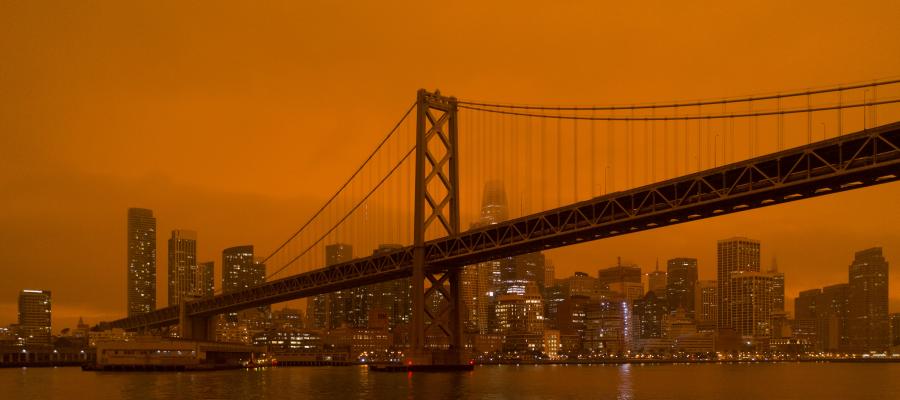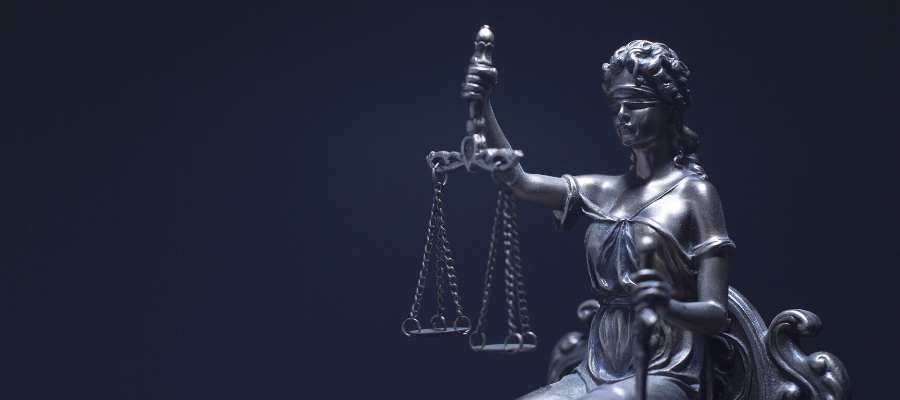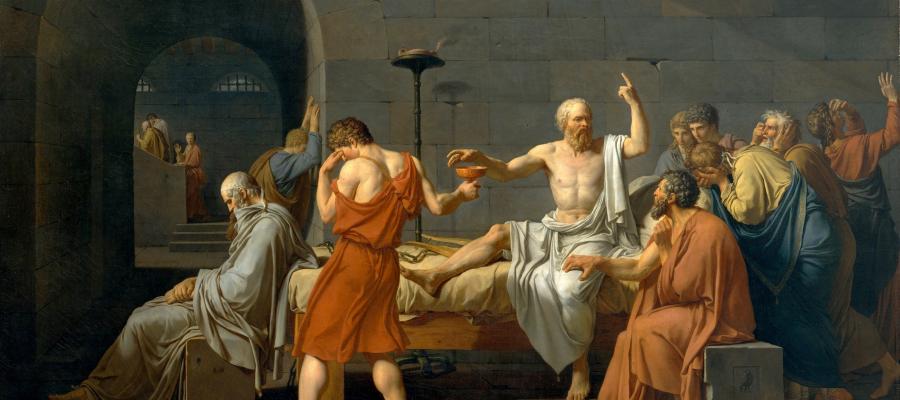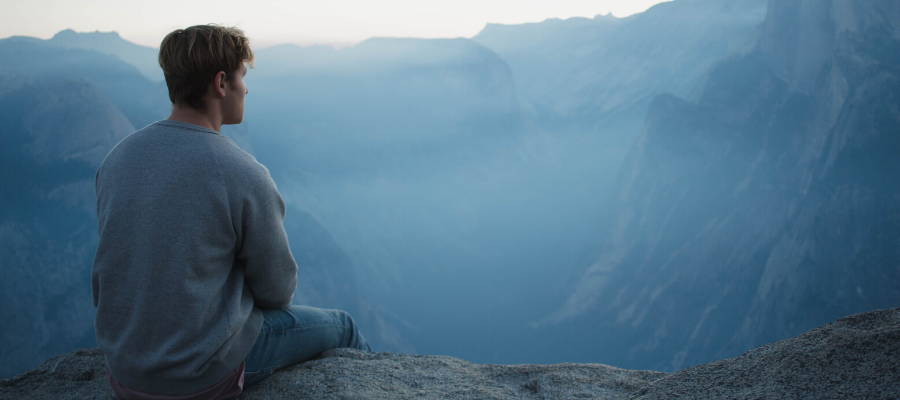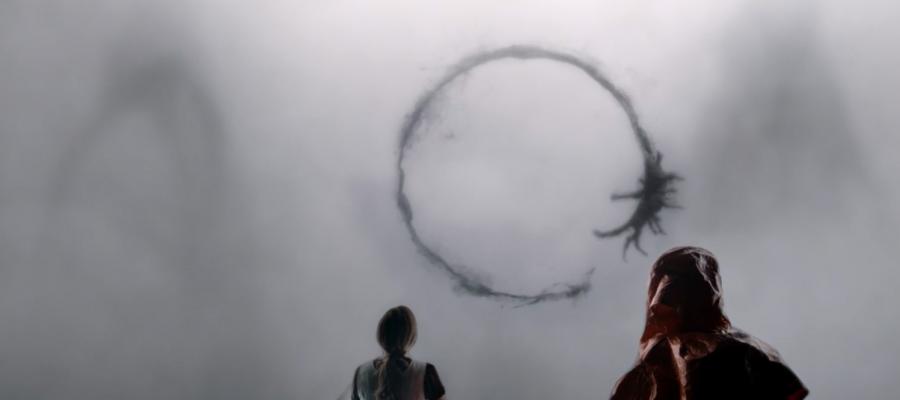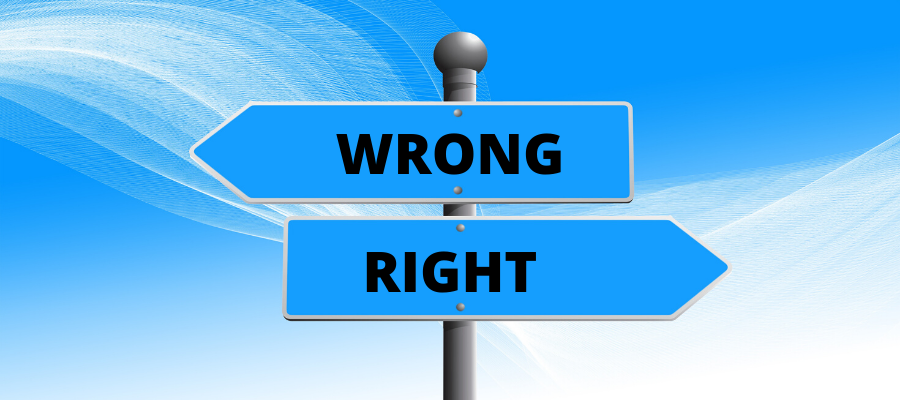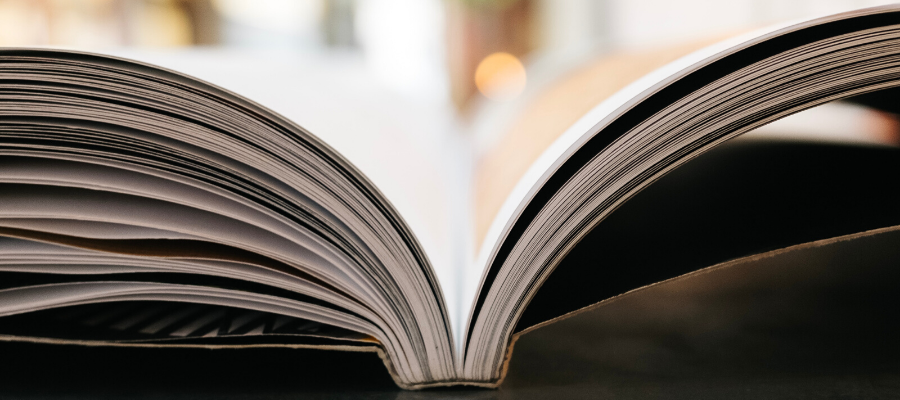Philosophy for the Apocalypse
30
Sep 2020
On September 9, 2020 in Northern California, you couldn’t see the sun rise. Instead the dark velvet of a night sky melted into an ugly orange mess, an ominous reminder of the wildfires that have consumed over 2 million acres already. No photo I’ve seen quite captures how surreal it looked. By 2pm, the sky was dark as dusk. The streetlights stayed on all day. Last year, when smoke choked us out of our outdoor activities, we fled into friends’ homes, restaurants, stores, offices, and schools to keep our sanity. This year, we can’t do that. Here in California you risk respiratory...
Read moreCancelling in Public and Private
17
Feb 2023
This week we’re thinking about Cancel Culture, which some consider a real problem: people losing their jobs, being harassed online, their home addresses being shared—all because they said something that came out the wrong way. Others see people who do or say terrible things getting some pushback, but mostly whining about how they’ve been victimized... on their Netflix comedy special. Let's leave aside the notable public figures, and the cases of egregious behavior: what about private citizens getting into trouble over innocent mistakes? Of course, regular folks can also say...
Read moreJustice Scalia and Judicial Diversity
15
Feb 2016
Before the imposing body of Justice Antonin Scalia was even cold, acrimonious partisan anticipation over replacing him aligned liberals and conservatives in opposed phalanxes. Fight over the man’s legacy first, bury him later. The Republican Senate Majority, as I write, stands with spears bristling in front of the confirmation process, while President Obama is determined to send a hapless nominee their way, come what may. But as The New York Times notes, Scalia in recent times wasn’t silent about what’s needed for the future of the highest Court. What did he want? In a word, ...
Read moreReview of Iris Murdoch's The Nice and the Good
14
Mar 2015
This is a review of Iris Murdoch's novel, The Nice and the Good (1968). Iris Murdoch (1919-1999) was one of the greatest English novelists of the 20th century, and also an important figure in philosophy. In fact, she was a professor of philosophy at Oxford, and her collection of essays The Sovereignty of Good (1970) continues to stimulate discussion. Her novels reflect her philosophical views, but they are largely devoid of technical terminology. (A pedantic character in this novel uses the expression “sense datum” in conversation with a friend, who immediately...
Read moreThe Wrong Abortion Question
31
Oct 2018
Is abortion the murder of an innocent child, or the exercise of a woman’s right to control her own body? Or maybe we’re focusing on the wrong question. Abortion is a “wedge issue” that divides Americans into a “pro-life” side that believes a fetus is a person with rights, and “pro-choice” side that believes fetus is a clump of cells which is morally insignificant when weighed against the right to bodily autonomy. Having two sides shout at each other obscures other serious obstacles to reproductive rights in the US—obstacles that both sides of the abortion debate should agree about....
Read moreWhy Not Change Your Core Self?
25
Oct 2019
Let’s say you could snap your fingers and all your various tastes and aesthetic preferences would change overnight. You would appreciate different foods, you would like different books, you would prefer different colors and clothing styles and jokes. Would you do it? I’m guessing your answer is a clear ‘no.’ I would say ‘no’ too. But why? Why not switch? The answer might at first seem easy. It would be really inconvenient to gain an entirely new set of preferences. You’ve set your life up around the ones you already have and you’ve made friends who like the same sorts of...
Read morePhilosophy and Shelley's Frankenstein
31
Oct 2017
With its 200th anniversary fast approaching in 2018, it might be time to revisit Mary Shelley's Frankenstein. In this audio clip from ABC, academics in the "Philosopher's Zone" discuss major themes and the predominant philosophies of the novel's day. Drawing from Shelley's Calvinist upbringing and prevalent ideas of the Romantic period, the hosts expand upon one-dimensional analyses of the novel, including analyses of the novel as a story about birth envy or as a cautionary tale against bold, scientific endeavors. Instead, as one participant of the discussion argues, the novel...
Read moreThe Morality of Big Business
14
May 2018
"Big business" for many has largely immoral associations: corrupt, profit-driven at the expense of human wellbeing or the environment, threatening to mom-and-pop shops everywhere. But this wasn't always the case—big businesses used to be viewed positively by the public. Is our current immoral perception of big businesses truly accurate? Are small-businesses really the shining examples or morality and business we take them to be? This article from The Atlantic tackles the question, "How did large firms go from being a symbol of American strength to being the object of...
Read moreTeaching Philosophy
21
Apr 2013
The study of philosophy, or the study of what other people have said that gets categorized under the heading 'philosophy', has the potential to leave one feeling a perpetual student. Expertise can be acquired in a so-called "field" of study. Along the way, however, students will have realized their "field" of study looks less like an actual field and more like a narrowly defined section of a bookshelf in a stuffy library. They will have also realized that one never finished studying philosophy. It's an interesting thought experiment to put the shoe on the other foot. What if you had to teach...
Read moreFeel like Democracy is Crumbling? So Did Plato
16
Mar 2017
This week in The Atlantic, Rebecca Newberger Goldstein posed a question: What happens when a society, once a model for enlightened progress, threatens to backslide into intolerance and irrationality—with the complicity of many of its own citizens? How should that society’s stunned and disoriented members respond? Do they engage in kind, resist, withdraw, even depart? Goldstein is wondering what a citizen should do when they feel like democracy has failed. How should we react when the people around us have vote in a way we find horrible? Though that sentiment might...
Read moreYour Question: Habermas and Factions
30
Jun 2017
We know the vast majority of our listeners don't get to hear the live broadcast of our show, which is usually Sunday mornings from the studios of KALW in San Francisco. Even listeners in the Bay Area often hear the KALW rebroadcast, Tuesdays at noon. But we know you often have questions about what you're hearing, so we decided to start a series called "Your Question" here on the blog. If you have a question after the live broadcast, you can still participate in the conversation. This week's show was on the German philosopher and critical theorist Habermas and his...
Read moreWhat's to be Done?
20
Nov 2005
The journal Topoi has asked a number of philosophers to write essays on the current state and future prospects of philosophy, under the title "What's to be Done?". I thought Philosophy Talk bloggers and bloggees might be interested in my essay, so here it is.Topoi provides an excellent expression of a view of philosophy that I share: Topoi's main assumption is that philosophy is a lively, provocative, delightful activity, which constantly challenges our received views, relentlessly questions our inherited habits, painstakingly elaborates on how things could be different,...
Read more#FrancisOnFilm: The Highs and Lows of 2016
10
Jan 2017
The end of a year is a time when film critics reflect on the best and the worst films of the year. Here are my top and bottom five picks for philosophers in 2016, listed alphabetically. Even the worst weren’t awful; they just weren’t my favorites. And I must admit what film critics often don’t: there are a lot of films I didn’t see, and I expect many of them were very good and some were worth missing. I’m the type who likes suspense, so I’ve tried to write these reviews on the assumption that it would be bad to give the endings away. Sometimes that’s meant I’ve had to say less about he...
Read morePhilosophy Talk Live at The Marsh SF this Sunday
13
Oct 2010
This Sunday we kick off another series of live recordings at the Marsh theater with two new shows in San Francisco: 12 pm: The Moral Costs of Free Markets. We live in a market-driven society—our day-to-day lives consist of buying and selling goods and services, and to some, our ability to do so without government regulation is the underpinning of democratic freedom itself. Everything has a price, and pretty much everything is for sale, from concert tickets to political influence. But should it be this way? John and Ken to discuss the moral limits of the free market with...
The Luck of the Draw: Live Blogging!
11
Jul 2008
Today's episode is about Lotteries -- not the state sponsored gambling type, but the type that allocate scarce goods and also burdens. Think of housing lotteries, school admission lotteries, and the draft lotteries. In Ancient Greece many political offices were alloted by lottery. Our question is whether and when lotteries are a just distributive mechanism. Sometimes they seem just the thing. The draft lottery, for example, seemed like a good way of keeping the privileged and connected from gaming the selective service system. But suppose tax rates were assigned by lot, so that your rate of...
Read moreIs Facebook Morally Responsible?
21
Aug 2021
If you’ve been following the news, you’re aware that the Delta variant of the Coronavirus is all around us. While it only poses a very minor risk to the vaccinated, it is wreaking havoc on the unvaccinated. At the time of writing, we’re back up to around 50,000 new cases a day in the United States, the vast majority of which are unvaccinated (around 99% of those hospitalized for Delta are unvaccinated). So with the easy availability of vaccines (at least in the US), why doesn’t the remainder of the population just get the jab? There are many and various answers to that question....
Read moreA Big Bang Blog
15
Aug 2016
Our topic this week is the Big Bang – Before and After. It’s another episode in our series "A Philosophical Guide to the Cosmos." Now they say that the Big Bang gave birth to the entire universe. So you might think that the Big Bang must have been one hell of an explosion. But technically speaking, the Big Bang wasn’t actually an explosion at all. It couldn’t have been. An explosion involves a rapid expansion outward from a center. Like when a bomb or a grenade goes off and you get matter and energy being thrown outward in all directions. But despite popular misconceptions, nothing like...
Read moreAshley Madison, accommodation, and silencing
10
Sep 2015
I recently read, with much interest, Jason Stanley’s How Propoganda Works and found it extremely stimulating and thought provoking. It was exciting to see how Stanley sees his work in even the most arcane areas of formal philosophy (philosophy of language and epistemology) as bearing on the most important political issues our society faces—issues of racism and injustice in liberal democracies. Equally as stimulating, has been following up on some of the sources Stanley cites as influencing his thinking on these matters. One of these sources was Rae Langton and...
Read morePhilanthropy vs. Democracy
29
Apr 2019
This week we’re asking whether philanthropy is bad for democracy—which is more than a little ironic. Philanthropy pays both of our salaries. It funds scholarships for needy students. It builds libraries, hospitals, and museums. So what’s not (for us) to like? For starters, we shouldn't let those good things blind us to the corrosive harm that philanthropy does—especially to democracy. Ask yourself why we need to bribe rich people into giving their money away, using tax breaks—and I mean huge tax breaks. All that does is reduce the overall funds government has to spend on all the...
Read moreMoney Matters
27
Apr 2020
Is money the root of all evil, or is it just a technology that makes our lives more efficient? Should some things not be for sale? This week on Philosophy Talk, we’ll be discussing money: where it comes from, what it is now, and what it could become in the future. You might think that something counts as money just in case it’s a valuable commodity that everybody is willing to barter for. Some forms of money, like gold coins, certainly fit this description. Others, like deeds that entitle the bearer to gold, are valuable because they represent valuable commodities. But it’s common...
Read moreWhat props up morality?
25
Jan 2018
Where does morality originate from? Kevin Simler tackles this question on ribbonfarm by comparing morality to a leaning tower, with virtue increasing as the floors increase. Simler questions how the tower remains supported, especially considering self-sacrficing altruistic behavior, a type of behavior from the very top of the tower. Perhaps, he suggest, morality benefits the individual as a Darwinian mechanism in survival. However, this theory comes with a couple bitter pills to swallow, including the idea that even those acts we consider morally good are motivated by self-interest...
Read moreAn Antidote to Bullshit
04
Jun 2018
In the last two installments of this blog, I’ve been discussing the so-called “Intellectual Dark Web” (IDW): an active and expanding Internet subculture that purports to provide an alternative to academic orthodoxy. Generally speaking, the stars of the IDW and their audience see the humanities and social sciences as hopelessly mired in politically correct ideology, and view their own enterprise as a sort of university-in-exile that is unsullied by feminism, identity politics, and other corrupting influences, and where unfettered freedom of thought and speech are the order of the day. I’ve...
Read moreArt and Obscenity
11
Mar 2017
The topic of this week’s show is Art and Obscenity. Specifically, we’re thinking about where art and obscenity intersect. So, what exactly do we mean by “obscene”? The Supreme Court defines it as any material which "appeals to a prurient interest in sex, portrays sexual conduct in a patently offensive way," and which "does not have any serious literary, artistic, political, or scientific value." Taken at face value, then, art—by definition—could never be obscene, and that would be the end of our discussion! Given that the Supreme Court has also declared corporations to...
Read moreMorality and the Self
29
Sep 2011
Our topic this week is Morality and the Self. Now most people think of themselves as pretty decent types, maybe not saints, but they tell themselves they're willing to do the right thing most of the time. But if you examine how people actually behave in various situations, situations that put their moral characters to the test, we don’t actually measure up to our own-self assessments. Social psychologists have long known that our evaluations of other people are suspect in certain ways. More recently, they've uncovered surprising and provocative results...
Read moreNozick, Libertarianism, and Philosophy
10
May 2017
In this Aeon article, historian Brad Baranowski highlights two of Robert Nozick's most important contributions to philosophy: first, his libertarianism; and then, his vision for what analytic philosophy could be—not as technical and obscurant. Nozick wrote perhaps his most famous book, Anarchy, State, and Utopia, in 1974 as a reply to Rawls' 1971 classic, A Theory of Justice. On the one hand, what are the merits of a libertarian, small-government way of looking at things? On the other, why did Nozick himself move away from libertarianism as his views on...
Read more